Australian self-published author Jessica Bell provides a personal case study of how writers targeting small niches may increase the income from their work by embracing other genres, as she has done. She generously shares some impressive sales figures to illustrate her point.
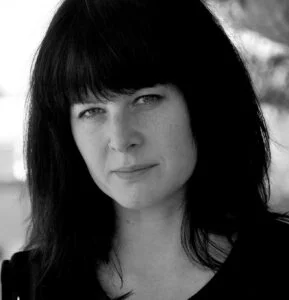 I write literary fiction and poetry. And let’s face it, they’re a tough sell, despite doing everything that author entrepreneur experts deem to be effective. People have suggested that I jump aboard the lucrative romance/erotica bandwagon to financially support the writing I’m passionate about. But what if I get stuck in a rut and it ends up being all I write because it’s what makes me money? I don’t want that.
I write literary fiction and poetry. And let’s face it, they’re a tough sell, despite doing everything that author entrepreneur experts deem to be effective. People have suggested that I jump aboard the lucrative romance/erotica bandwagon to financially support the writing I’m passionate about. But what if I get stuck in a rut and it ends up being all I write because it’s what makes me money? I don’t want that.
Are you nodding? Are you in a similar situation? Repeat after me: I AM NOT DOOMED.
There are other things you can write to create a name for yourself as an indie author. One is non-fiction. As you will see in my sales stats at the end of the post, branching out has proved effective in getting my novels noticed.
Why Fiction Authors Should Consider Writing Non-Fiction Too
The beauty of writing non-fiction is that it uses a whole different skill set to fiction. For me, this meant I was able to compartmentalize my writing projects. Nonfiction equaled job. Fiction equaled fun. I don’t think I would have been able to separate the two like that if they were both fiction. I would have got caught up in the excitement of storytelling rather than the neutralizing effect of fact telling.
I’m not saying this is an easy way to success. You will still need the time and determination to make this work. But if you are determined, I’m 100% certain you can make it work.
If you are in a similar situation to me, and thinking about writing a nonfiction book, let me offer you a few ideas.
Think about what field of work you are trained in. Are there skills you have acquired from working in this field that you could teach others? Think about how you can switch it up a bit, so it’s not the typical “how to” book.
Case Study 1: My Writing Craft Books
My writing craft books are not just writing craft books reiterating the same information from a different perspective. I’ve put a spin on the idea of teaching writing craft by focusing on one aspect of the craft at a time in each book (i.e. show, don’t tell; adverbs & clichés; incorporating sensory information). They also double as a workbook that encourages writers to learn by doing exercises rather than just reading about them.
“But I’m not officially trained in any field,” you say? That doesn’t matter. You can simply write from experience. Did you landscape your own garden without knowing the first thing about landscaping, and now all your neighbours want you to do theirs, and suddenly you’re making an income from it? Write a book on how you did it. From teaching yourself the techniques, to buying the right materials, to marketing yourself, to starting a new business, etc.
Not really keen on the “how to” idea? Why don’t you write a book that encourages others to try something new by writing it in the style of an informative memoir? People find comfort in reading about other people’s experiences when they’re hesitant to tackle a challenge.
Case Study 2: Joanna Penn's Public Speaking Book
I recently read a book called, Public Speaking for Authors, Creatives and other Introverts by Joanna Penn. It’s not just a book about how to become a public speaker, though. Joanna writes from personal experience in a very friendly and genuine manner—it felt like I was conversing with her in her living room. Her style was kind, accessible, and authentic. She made me feel like an equal, and that I wasn’t alone in my fear of public speaking. I immediately recommended it to my friends. Look, I’m even writing about it here.
There are always going to be people who want to learn how to do something new, or be encouraged to do something new. And what’s the first thing, (other than the Internet), that you turn to when you want to learn something new? That’s right. Books.
Okay, this is all well and good, you say, but you have some questions.
How To Write and Market Your Non-Fiction Books
Q) Do I market them under the same umbrella?
A) I did. But that’s because I already had an established platform. But you know what? I don’t believe you need much of a platform to sell nonfiction. People will search for topics they need help with and buy a book they think will assist them regardless of who wrote it. Of course, if you are writing about something like law or medicine, they are going to want to see your credentials in your biography.
Q) Will I need to employ the same promotional tools I use for my fiction?
A) I did hardly any marketing and the books took off without much effort. You do need to be very careful with your keywords though. You want people to find the book by simply searching for what they need.
Q) Are there rules, or a structure for writing nonfiction?
A) The main thing is that you need a concise table of contents and indexes. And in the eBook version, make sure they are hyperlinked. The brilliant thing about nonfiction reference books is that you don’t have to read them from beginning to end. You can dip in and out to find what you need when you need it. So, make sure it’s as easy as possible for your readers to do this. I also advise you serialize it. The more separate titles you have available, the better chances you have of being seen. Also, don’t forget to link to your novels in the back the book!
Measuring My Success So Far
I am by no means an expert. I do not even earn anywhere near 10k a year from my books. BUT … I think this could be the year that I do. And I know it is the result of my nonfiction titles.
I’m going to be brave and share my sales statistics with you. Please don’t laugh. These are realistic stats. I am “surviving” as an indie author. I have been able to pay for my publishing fees, plus utility bills. And that’s good enough for me. I suppose it all really depends on what you want to achieve. Do you want to become the next Hugh Howey? That’s totally fine. You can aim for that. (Heck, I’m aiming for that!)
But in the meantime, you need to find a “safe goal.” What I mean by that is, a realistic goal that will satisfy you until you reach the better goal.
Okay, here goes:
- In 2011, I had one novel out. I sold 115 books the entire year.
- In 2012, I had one novel and two poetry books out. I sold 494 books. The majority of which were sold via a BookBub promotion in a couple of days. So that doesn’t really show “true” sales success there.
- In 2013, I published two short stories, two more novels, and my entire Writing in a Nutshell series (Book #1 released Nov 2012, Book #2 Apr 2013, and Book #3 Oct 2013), I sold 3544 books. 2520 were nonfiction sales.
- On January 3rd this year, I released the all-in-one version of the Writing in a Nutshell series. My current sales stats for 2014 (on February 27th) show 1520 books. That’s 1520 books in less than 2 months. And guess how many of the 1520 were novel and poetry book sales? 420.
That’s significant progress, isn’t it?
No, I’ve not become an internationally known bestselling author. Yet. But I am thrilled I have come this far, and my nonfiction titles have clearly helped boost my visibility and discoverability. To me, that’s success. I have reached my “safe goal.” And the only way is up, don’t you think?
Do you think you have a nonfiction title in you? What would it be about? Got more questions? I’m happy to answer them as best I can in the comments.

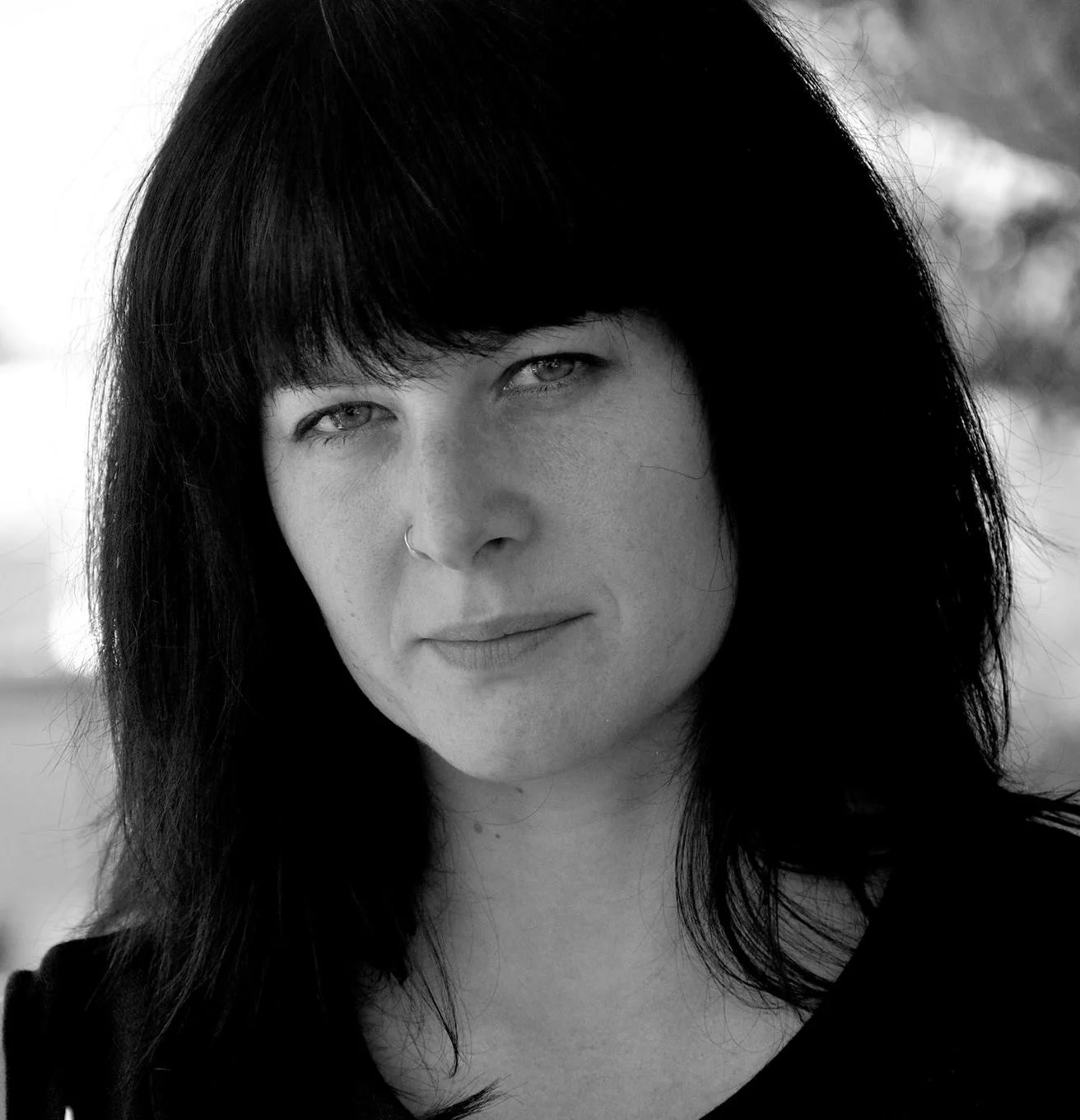
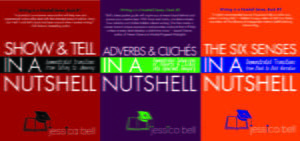
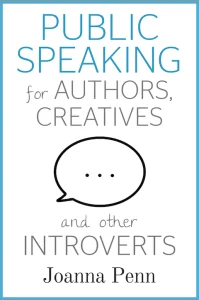
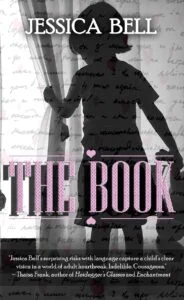




the holy trinity uniting the ten keys: content, communication, and commitment. Having courage, a plan, patience, discipline, faith in yourself, a long-term perspective; failing your way to success; simplifying your life; and celebrating your victories
These keys challenge you to balance yin and yang—creating content and communicating about it. Integrating them will create synergy and a literary ecosystem that will flourish as long as you sustain it. You can adapt the keys to other fields and your personal life.
Hi Jessica,
Introduction first. I’m a budding author and software developer, both at the same time. May sound like an odd couple, but I think I can utilize these together for publishing.
I fully agree with what Jessica wrote. And I believe her sales numbers. Here is why.
6 years ago a fellow came to our town and organized a presentation on writing and self-publishing. I still vividly remember his words: “If you want to make money in self-publishing you have to go non-fiction”. This is where the money is. People need information on variety of subjects and topics. If you can provide this information they will buy it. In other words, if there is a demand and you can meet it you have a winning card.
How do you determine what is in demand? Check the Google or Amazon word search. What words are most frequently (and consistently) searched for? This is the demand. Do they find what they look for? Enter these keywords yourself and evaluate what you see in response. That’s what the presenter was advising for finding subjects for your non-fiction publications. Sounds pretty logical.
Now back to authoring/self-publishing and software development. Apps are buzzword everywhere. Have you heard a phrase like this: “I have a problem and no solution. Is there an app for that?”. This is, I think, an open field for reference, how to and many other non-fictions. Why? What is easier to use: a printed manual or an app on your smartphone at your fingertips whenever you need it, available with only a few taps on the screen? I heard that schools plan to put textbooks for students as apps and every student will have a tablet with all they need as apps. I think this is going to be a big field for self-publishing.
I actually started on this way myself. I recently published a book titled “How to train your cat to be a better pet and companion” as an Android app available on Google store. In the future I will concentrate on apps as well and already have several “How to…” ideas.
Has anybody tried something similar?
Jerry
Karen Inglis has an app for her children’s book, Ferdinand Fox, which I think is doing very well.
That’s what I heard, too, that children’s books are doing good as apps – because they are interactive. What I am thinking about is to try other genres, if the can be equally successful, particularly “How to’s”, educational and reference. The market seems to be quite open.
Thanks for sharing your experience, Jessica !
I had pretty much the opposite trajectory: started in 2011 with a non-fiction book (much more a “testimony”, however) about my weight-loss experience. It sold quietly almost itself as I did absolutely zero marketing efforts.
The key with non-fiction seems definitely to be genuine, honest and authentic and, as you mentioned concerning Joanna Penn, having a discussion with your audience rather than giving them lessons.
Mid 2013, as inspiration goes, I started writing a crime series, and I’m currently reviewing the fifth episode… It’s definitely another market and having several books looks like a sale booster too. However, marketing fiction books is pretty much a full time occupation !
Also, I found that the ratio of comments/sales is way higher for non-fiction books.
At this very moment, I did not obviously link the two categories together (however, Amazon, Apple and Kobo store do it for you anyway), but I’m seriously considering it by adding a section for non-fiction books on my website. Even if my primary market is french and habits may be different than english markets.
That leads me to my final comment: if not already planned, having your book translated in other languages could be a plus (I did it myself regarding my non-fiction book, and am considering it for the first episode of my crime series, with the help of a professional translator). French market is a much smaller sea, but consider that there are less fishes there 😉
Hello everyone. Thanks for sharing your interesting article Jessica. (And the follow, lol.) I’m a South African psychic medium and numerologist; I have so many intersting stories to tell through my experience, and have been writing my first fiction romance paranormal ebook. Its a work in progress which I hope to finish shortly. I think most new authors wonder how their sales will go, and reading your article gave me the motivation I need. Its not bragging…you have earned your sales by writing good, helpful books. Well done! I’m not one who uses social media much, yet when I notice an article I enjoy, I do re-tweet it as it could motivate others as well. Thanks so much for your stats and helpful post. Kind regards, Priscilla Olivier. (Aka twitter : psychicmedPris)
After a career writing for advertising, radio and corporate communications, I gave it all up to become a novelist. My debut novel, ‘The Madras Mangler’, a suspense thriller has been published recently and received a lot of favourable notice from media reviews and readers. But I realised rather late in the day that fiction writers can hardly make a living with their books. Now what? Jessica, you’ve opened up a new line of thought, though I’m not really sure what skills I have to write about! Thank you for your amazing idea and your generosity. And good luck with your new books.
Hi Jessica: Thanks for your valuable comments and insights. NIche Marketing is a Chapter in my e-Book “Winning Success with Assertive Marketing”. Starting with this concept and then branching out is a tried and true method. However, the most wonderfully written book ever, still needs the hard work of publicity and a markeing platform to reach niche readers and succeed.
Best of success…
Warren.
That’s exactly why I have two non-fiction books in addition to my fiction titles. It also opens the door to more appearances, online and in the real world. Plus you are more media-friendly then.
Wonderful and genuine piece. I write many things (all fiction so far). Some pay my bills, some are still waiting to find their audience. If I were to write non-fiction, I think it would be on being a novelist and reading tutor, for parents of children with dyslexia. I have considered it, but only because it is one of my passions. I don’t think it would be a huge seller 🙂
I love the cover of Bitter Like Orange Peel (as a reader, I am easily seduced by an intriguing title/cover combination).
Brilliant timing, and a great article. Briliant timing since I spent the morning chatting with another author, who does exactly what Jessica describes: writes both fiction and non-fiction in about equal measure: her non-fiction as spin-off from her ‘other’ skills mix, which isn’t writing-related.
The 2 coming together, I am now thinking more seriously about *my* skills mix, which exists in a collection of articles which might be useful as the jumping off point for a book… Interesting about how to not write the how-to thing… and that non-fiction sells better…
Thank you, Clare. And yes, I urge you. It could make the world of difference. You never know unless you try! 🙂
thanks for this! getting noticed in “literary fiction” IS hard…and I do have several “contemp/E-rom” books out there too. Moving FROM that into something else is proving very nearly impossible. The advice about non fiction is one I had not really heard before but will ponder it. thanks
Good luck with that beer book you mentioned on Twitter! 🙂
Well done, Jessica! Thanks for the info–and I hope this is your year! Take care!
Thank you, Dee!
Jess, this is a fantastic post. So much good information and your generosity in sharing your stats. I think you are right about how-to books. And Alex, you were kidding around, but I’m not sure bloggers wouldn’t buy that book if you wrote it.
Thank you so much, Karen! I agree with you about Alex’s book! Ha!
Thanks Jessica. I admire your honesty about sales figures. It is hard for many of us who are unknown to become visible.
I know from writing for magazines that it is always easier for me to sell a non-fiction article than a story. So it’s interesting that the same seems to hold try for books as well. Definitely food for thought.
To be honest, I was a little worried about revealing that stats, but it seems it has been helpful. Thank you!
I went in the opposite direction. After decades of nonfiction only, I published a book that’s half-fiction. http://www.amazon.com/dp/B00AS44XS8
Good luck with that, Michael. Thanks for commenting!
Really enjoyed the post, Jessica. I’m in much the same boat as you (except that you outsell me by a considerable margin.) I too am as you may know a literary fiction wallah (promoter of the Quagga Prize etc) and an now working on writing skills books, first one due in September at the start of the school year! Afterr the joys and agonies of completing a novel it’s very pleasant to have a genre with parameters, a task with a foreseeable end.
Thank you, David. I wish you all the best with your nonfiction titles! And I totally understand where you are coming from about it being pleasant to have a genre with parameters. I thrived on that too.
Thanks for this, Jessica. I hadn’t thought about writing non-fiction before, but reading through this article, it gave me an idea. Now the wheels are turning. 🙂
Ooh! Glad I could help spark and idea! 🙂
Good article, and good advice – thank you for sharing. I and my editor, Jo Field, wrote a short NF book about tips for novice writers (with a special bias towards writing historical fiction as that is my ‘genre’) We put Discovering the Diamond together because we found we were getting the same questions for advice asked over & over, and thought it easier to write some simple answers as a fact sheet of about 3 A4 pages – which soon became 6, then 12 and then the book!
I won’t say it is the ultimate answer for new writers, but when I went Indie here in the UK I learnt through making a lot of errors, and wanted to share a few of the dos and don’ts that were part of my steep learning curve.
It’s nice that several authors have found the book useful.
(Discovering the Diamond by Helen Hollick is available on Amazon UK & US – hope it is OK to put the brief trumpet tootle here?)
Post shared : FB, Twitter, etc)
Absolute fine to mention it here, Helen – and I enjoyed and benefited from “Discovering the Diamond”.
That sounds like a very interesting book, Helen. I wish you all the best with it! And thanks so much for your compliments.
This is a very generous post, not only the ideas but the stats speak so persuasively. I am looking through this advice upside down, having struggled to get a non fiction titled noticed, but also being a writer of fiction and poetry, am wondering about going in the opposite direction. My non fiction is not the sort of work suggested here, which would be of direct benefit to others and therefore answering known needs, so my experience is perhaps not helpful to others, but unless it is (helpful, insightful, confessional, how to) non-fiction is probably harder to market.
I could not face making my statistic known for a work that has been nominated ‘runner-up ‘Book of the Year (2013)!
I think that caution is worth making.
Thank you, Phillipa. Yes, that’s a good point. I think the nonfiction that sell the most are books in which the readers learn a skill. I could be wrong. But it’s an assumption worth investigating.
Amazing how much better your non-fiction books sell.
Not sure what I would write. I don’t think How to be a Blogging Ninja would do well.
Alex, I’m pretty sure a book on being a blogging ninja would do well! I’m sure you have thousands of fans wondering how you to do it.
Thank you so much for having me today!